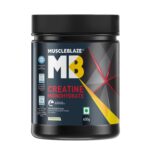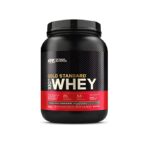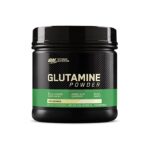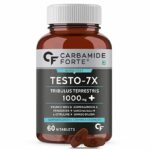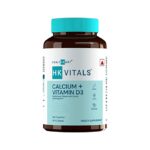Should We Depend on Supplements for Muscle Building-Muscle building has become a significant focus for many fitness enthusiasts, with people striving to achieve a well-toned and strong physique. In the pursuit of maximizing their gains, some individuals wonder whether depending on supplements is a necessary step. This article aims to explore the pros and cons of relying on supplements for muscle building, the importance of a balanced approach, and alternative strategies to enhance muscle growth naturally.
Introduction
Muscle building, also known as hypertrophy, refers to the process of increasing muscle size, strength, and endurance through various means such as exercise, nutrition, and recovery. It is a common goal among fitness enthusiasts, athletes, and bodybuilders who seek to improve their physical performance and aesthetics.
Understanding Supplements:
Supplements are products designed to complement an individual’s diet and provide essential nutrients that may be lacking. They come in various forms, including protein powders, amino acids, creatine, and vitamins. These products are marketed as aids to support muscle growth, enhance performance, and improve overall health.
Pros: of Depending on Supplements
- Convenient Source of Essential Nutrients: Supplements offer a convenient way to consume specific nutrients required for muscle building, especially for individuals with busy lifestyles or dietary restrictions.
- Enhanced Muscle Recovery and Growth: Certain supplements, such as branched-chain amino acids (BCAAs) and whey protein, have been shown to promote muscle recovery and stimulate muscle protein synthesis, leading to greater muscle growth.
- Increased Performance and Energy Levels: Pre-workout supplements containing ingredients like caffeine and creatine can enhance energy levels, focus, and performance during workouts, potentially leading to more intense training sessions and better muscle-building results.
Cons: of Depending on Supplements
- Potential Health Risks and Side Effects: Some supplements may carry health risks and cause adverse side effects, especially when used in excessive amounts or without proper guidance. For example, high doses of certain supplements can strain the liver and kidneys or disrupt hormonal balance.
- Lack of Regulation and Quality Control: The supplement industry is not tightly regulated, which can result in the presence of contaminated or ineffective products. Without proper quality control, consumers may unknowingly purchase supplements that do not deliver the promised benefits.
- Financial Implications: Depending solely on supplements for muscle building can be costly in the long run, as many high-quality products come with a hefty price tag. This financial burden may be unsustainable for some individuals.
Balancing Supplements with Whole Foods
While supplements can provide certain benefits, they should not replace a balanced and nutrient-rich diet consisting of whole foods. Whole foods contain a wide range of vitamins, minerals, fiber, and phytochemicals that work synergistically to support overall health and muscle growth. Incorporating lean protein sources, complex carbohydrates, healthy fats, and ample fruits and vegetables is crucial for optimal muscle-building results.
Considerations for Supplement Use
When considering supplement use for muscle building, it is essential to take a personalized approach and consider the following factors:
- Consulting a Healthcare Professional or Nutritionist: Seeking guidance from a healthcare professional or registered nutritionist can help determine individual nutritional needs, identify any deficiencies, and provide specific recommendations.
- Understanding Individual Needs and Goals: Every individual has unique goals and requirements when it comes to muscle building. Understanding one’s needs and goals can help tailor the selection and dosage of supplements accordingly.
- Identifying Reputable Supplement Brands: With the vast array of supplement options available, it is crucial to choose products from reputable brands that prioritize quality, safety, and transparency in their manufacturing processes.
Building Muscles Naturally
While supplements can provide support, building muscles naturally involves more than just relying on external aids. It requires consistent training, a well-designed exercise routine, and adequate rest and recovery. Here are some key principles to consider:
- Importance of Consistent Training and Exercise: Regular resistance training and progressive overload stimulate muscle growth by placing stress on the muscles, leading to adaptation and hypertrophy.
- Incorporating Strength Training and Resistance Exercises: Focusing on compound exercises that target multiple muscle groups, such as squats, deadlifts, bench presses, and pull-ups, can optimize muscle-building potential.
- Proper Rest and Recovery for Muscle Growth: Allowing sufficient time for rest and recovery is essential for muscle growth. During rest periods, the muscles repair and rebuild, leading to increased strength and size.
BEST SUPPLEMENTS FOR MUSCLE BUILDING NATURALLY :- CHECK BEST BUY LINK HERE
- CREATINE MONOHYDRATE – CHECK BUY LINK

- WHEY PROTEIN– CHECK BUY LINK

- AMINO ACIDS– CHECK BUY LINK

- TESTOSTERONE BOOSTERS– CHECK BUY LINK

- CALCIUM– CHECK BUY LINK

- MAGNESIUM– CHECK BUY LINK

The Role of Genetics and Individual Variations
It’s important to acknowledge that genetics play a significant role in an individual’s muscle-building potential. Some people may naturally have a greater capacity for muscle growth, while others may have to work harder to achieve similar results. Additionally, individual responses to supplements can vary, and what works for one person may not yield the same effects for another.
Creating a Personalized Approach
To optimize muscle-building efforts, it is crucial to create a personalized approach that combines appropriate supplement use, a balanced diet, and an effective training regimen. Consider the following strategies:
- Tailoring Supplement Use to Individual Needs: Understand the specific supplements that align with your goals, and incorporate them into your routine as necessary. This may involve adjusting dosages or cycling different products based on individual responses.
- Monitoring Progress and Adjusting Strategies: Regularly assess progress by tracking muscle gains, strength improvements, and overall performance. This information can help adjust training and supplementation strategies to optimize results.
Conclusion:
While supplements can provide support in muscle building, The decision to depend solely on supplements for muscle building is a complex one. While supplements can offer convenience and potential benefits, they also come with risks and limitations. It is important to strike a balance between supplement use and a well-rounded approach that includes a balanced diet, proper training, and sufficient rest. while supplements can be a valuable addition to a muscle-building regimen, relying solely on them may not be necessary or advisable. Balancing supplement use with a nutrient-rich diet, appropriate training, and rest is key to achieving sustainable and optimal results. It is essential to prioritize overall health, seek professional guidance, and make informed choices to support long-term muscle-building endeavors.
FAQs:
- Are supplements necessary for muscle building?
Supplements are not absolutely necessary for muscle building, but they can provide support in meeting specific nutrient needs and enhancing performance.
- What are the potential risks of relying solely on supplements?
Relying solely on supplements can carry potential health risks and side effects, such as liver and kidney strain, hormonal imbalances, and the consumption of contaminated or ineffective products.
- Can I build muscles without using supplements?
Yes, it is possible to build muscles without using supplements. A well-rounded diet, proper training, and sufficient rest are essential components of natural muscle building.
- How can I determine the right supplements for my goals?
Consulting a healthcare professional or nutritionist can help determine individual needs and goals, allowing for personalized recommendations and guidance on selecting the right supplements.
- What role do genetics play in muscle building?
Genetics play a significant role in muscle-building potential. Some individuals may have a genetic advantage in muscle growth, while others may need to work harder to achieve similar results.
Should We Depend on Supplements for Muscle Building
Supplements for Muscle Building,Supplements for Muscle Building,Supplements for Muscle Building,Supplements for Muscle Building,Supplements for Muscle Building,Supplements for Muscle Building,Supplements for Muscle Building



